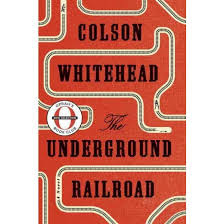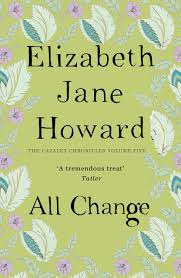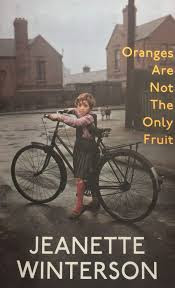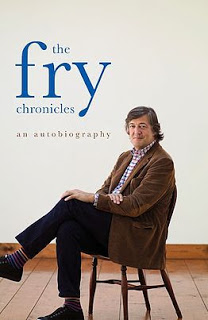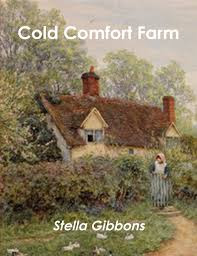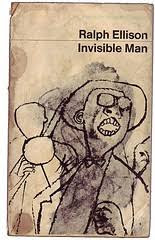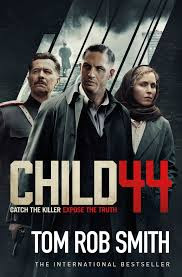I’ll go so far as to say this book almost made me proud to be British. This will surprise those who know me, as I am not really British, and don’t certainly approve of being proud of your nationality. I think this is the first time I’ve ever been reduced to tears by a stiff upper lip. And tears is putting it mildly: by the end I was full ugly crying on the Gatwick Express.
From the Introduction, I learn that Scott’s fame as an explorer rests less on his feats of exploration than on his writing abilities. Others have done far more, but written about it less well (e.g., ten points to anyone who can say what Speke discovered); and indeed the journals are remarkably well written. The subject matter is of course also remarkable, telling a tale of enormous, and largely pointless, human endurance.
It’s just begging for a movie, and I am sure a few must have been made. It starts off quite cheerfully, with the departure from New Zealand on a ship, and much sea sickness. The photographer is particularly badly hit:
I am told that he posed several groups before the cinematograph, though obliged repeatedly to retire to the ship’s side. Yesterday he was developing plates with the developing dish in one hand and an ordinary basin in the other!
There is also high drama. They hit a storm, which sounds pretty horrifying to me, but Scott has been at sea since his early teens so takes it quite calmly:
The seas were continually breaking over these people and now and again they would be completely submerged. At such times they had to cling for dear life to some fixture to prevent themselves being washed overboard, and with coal bags and loose cases washing about, there was every risk of such hold being torn away
Once they get to Antartic he learns things about the ocean that are new to him. Next extract is long, so skip it if you like, but you’ll be missing killer whales:
Some 6 or 7 killer whales, old and young, were skirting the fast floe edge ahead of the ship; they seemed excited and dived rapidly, almost touching the floe. As we watched, they suddenly appeared astern, raising their snouts out of water. I had heard weird stories of these beasts, but had never associated serious danger with them. Close to the water’s edge lay the wire stern rope of the ship, and our two Esquimaux dogs were tethered to this. I did not think of connecting the movements of the whales with this fact, and seeing them so close I shouted to Ponting, who was standing abreast of the ship. He seized his camera and ran towards the floe edge to get a close picture of the beasts, which had momentarily disappeared. The next moment the whole floe under him and the dogs heaved up and split into fragments. One could hear the ‘booming’ noise as the whales rose under the ice and struck it with their backs. Whale after whale rose under the ice, setting it rocking fiercely; luckily Ponting kept his feet and was able to fly to security. By an extraordinary chance also, the splits had been made around and between the dogs, so that neither of them fell into the water. Then it was clear that the whales shared our astonishment, for one after another their huge hideous heads shot vertically into the air through the cracks which they had made. As they reared them to a height of 6 or 8 feet it was possible to see their tawny head markings, their small glistening eyes, and their terrible array of teeth–by far the largest and most terrifying in the world. There cannot be a doubt that they looked up to see what had happened to Ponting and the dogs . . . Of course, we have known well that killer whales continually skirt the edge of the floes and that they would undoubtedly snap up anyone who was unfortunate enough to fall into the water; but the facts that they could display such deliberate cunning, that they were able to break ice of such thickness (at least 2 1/2 feet), and that they could act in unison, were a revelation to us. It is clear that they are endowed with singular intelligence, and in future we shall treat that intelligence with every respect.
It can’t be a polar adventure without penguin hijinks, and here we have them aplenty as they are constantly distracting the huskies, and can’t seem to learn that dogs are dangerous to birds:
The great trouble with (the dogs) has been due to the fatuous conduct of the penguins. Groups of these have been constantly leaping on to our floe. . . They waddle forward, poking their heads to and fro in their usually absurd way, in spite of a string of howling dogs straining to get at them. ‘Hulloa,’ they seem to say, ‘here’s a game–what do all you ridiculous things want?’ And they come a few steps nearer. The dogs make a rush as far as their leashes or harness allow. The penguins are not daunted in the least,. . . and then the final fatal steps forward are taken and they come within reach. There is a spring, a squawk, a horrid red patch on the snow, and the incident is closed.
The dogs also provide amusement as when the ice cracks under their feet they think there is some kind of small creature there, and try and hunt them down.
As the book goes on, it ceases to be fun, or funny, and the last hundred pages are brutal. Basically on the way to the pole the team drops off food for themselves to eat on the way back. A group of five makes the final attempt on the pole, only to find that the Norwegian Amundsen has beaten them there. This is awful for the men, but much worse is to come. One of them dies (scurvey? mental breakdown?). Then they try and make it back via the food stations they left behind. The weather is against them, and they are running out of water. They need to make about ten miles a day, and as they weaken – one man in particular, Oates, slowing them down – they are routinely making less than that, and the brutal math of food days remaining gets worse and worse, as it gets less and less likely they can reach the final station. Here’s a sample:
Titus Oates is very near the end, one feels. What we or he will do, God only knows. We discussed the matter after breakfast; he is a brave fine fellow and understands the situation, but he practically asked for advice. Nothing could be said but to urge him to march as long as he could. One satisfactory result to the discussion; I practically ordered Wilson to hand over the means of ending our troubles to us, so that anyone of us may know how to do so. Wilson had no choice between doing so and our ransacking the medicine case. We have 30 opium tabloids apiece and he is left with a tube of morphine. So far the tragical side of our story.
The sky completely overcast when we started this morning. We could see nothing, lost the tracks, and doubtless have been swaying a good deal since—3.1 miles for the forenoon—terribly heavy dragging—expected it. Know that 6 miles is about the limit of our endurance now, if we get no help from wind or surfaces. We have 7 days’ food and should be about 55 miles from One Ton Camp to-night, 6 × 7 = 42, leaving us 13 miles short of our distance, even if things get no worse. Meanwhile the season rapidly advances.
They keep their spirits up, discussing what they will do when they get home, though they all are starting to know they will not being be going home. Grit your teeth, here’s the most famous paragraphs in the diaries – Oates giving up his life for the others:
Lost track of dates, but think the last correct. Tragedy all along the line. At lunch, the day before yesterday, poor Titus Oates said he couldn’t go on; he proposed we should leave him in his sleeping-bag. That we could not do, and induced him to come on, on the afternoon march. In spite of its awful nature for him he struggled on and we made a few miles. At night he was worse and we knew the end had come.
Should this be found I want these facts recorded. Oates’ last thoughts were of his Mother, but immediately before he took pride in thinking that his regiment would be pleased with the bold way in which he met his death. We can testify to his bravery. He has borne intense suffering for weeks without complaint, and to the very last was able and willing to discuss outside subjects. He did not – would not – give up hope to the very end. He was a brave soul. This was the end. He slept through the night before last, hoping not to wake; but he woke in the morning – yesterday. It was blowing a blizzard. He said, ‘I am just going outside and may be some time.’ He went out into the blizzard and we have not seen him since.
In the end, they die just 11 miles from base camp. Their compatriots find them dead when the summer comes, with the diaries, and various terribly sad letters to their families and friends. 11 miles! It’s makes me sad again just blogging it. For Scott there is much consolation in the valour of human endurance and death with honour.
We are showing that Englishmen can still die with a bold spirit, fighting it out to the end.
It’s 1912, so there hadn’t been a European war in century, and this long period of peace is perhaps why he felt that this was something that needed proving. It was going to be proved a lot from 1914 onwards. Indeed, many of the men who survive the trip to the Antartic also serve in the trenches, and if they made it through the former don’t usually make it through the latter. It adds another layer of shadow to the story.
Scott has been much criticized for poor preparations. For example, they run out of water because they run out of paraffin to melt snow, and they run out of that because it evaporates which is a result of the choice of the wrong kind of stoppers on their cans. Amundsen meanwhile, in an approach I can only regard as smugly Scandinavian is properly prepared, using knowhow from the native people. Meanwhile the British imperiously ignore local knowledge and die in totally avoidable glory. Somehow I find I can’t really care. Own fault or not, a slow death is sad. Scott’s is particularly so, because over the course of the few hundred pages you find you come to care about him. This is partly because he is a fine writer, and has captured his experience really well. You can see he has thought about writing – the cover pages of the journals have quotes he copied down. This one I enjoyed from Robert Louis Stevenson: “No human being ever spoke of scenery for two minutes together, which makes me suspect we have too much of it in literature. The weather is regarded as the very nadir and scoff of conversational topics.” I like this both because I also dislike descriptions of scenery in novels, and because of the irony of how important weather is going to be to Scott’s own death.
I read the journals while on holiday on a hot beach, so Scott’s life couldn’t feel more different from mine. But it’s so very human. Here’s a comforting piece from an earlier diary he thought people would never see.
What a pleasure it must be when the right word is forthcoming at the right place, or when without trouble argument succeeds argument . . . I write of the future; of the hopes of being more worthy; but shall I ever be – can I alone, poor weak wretch that I am, bear up against it all. The daily round, the petty annoyances, the ill health, the sickness of heart – how can one fight against it all. No one will ever see these words, therefore I may freely write – what does it all mean?
So Scott of the Antartic has the same troubles as us all. I can’t imagine we would also face the trouble with the same courage.
